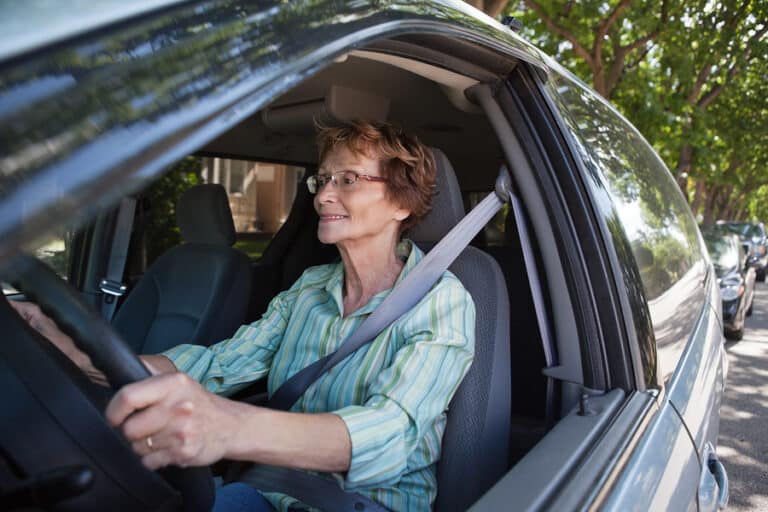As our loved ones age, their ability to drive safely can become a concern. It is not always easy to recognize when a senior should stop driving, but prioritizing their safety is essential. For many families, this decision can be challenging, but personal care at home can provide the support they need when they can no longer drive.
1. Declining Vision and Hearing
One of the most common reasons seniors should stop driving is a decline in vision and hearing. Age-related changes, such as cataracts, glaucoma, or hearing loss, can make it difficult for seniors to react to traffic signals, pedestrians, or the sounds of other vehicles.
When a senior’s senses are impaired, they may not notice important signals or sounds, increasing the risk of accidents. Regular eye and hearing exams can help identify these changes early, but if they begin to impact driving ability, it may be time to have a serious conversation.
2. Slower Reaction Time
Aging can naturally lead to slower reflexes and reaction times. This means that seniors may struggle to respond quickly to sudden changes on the road, such as a car stopping abruptly or a pedestrian crossing unexpectedly.
Personal care at home can ensure that seniors have transportation to their appointments and social activities without needing to rely on their own driving skills. Caregivers can provide safe and reliable transportation, allowing seniors to maintain their independence.
3. Cognitive Decline
Cognitive decline is another significant reason to consider when evaluating a senior’s driving abilities. Memory problems, confusion, and difficulty with decision-making can lead to dangerous situations on the road.
Seniors with cognitive issues may forget where they are going, become easily disoriented, or struggle to make quick decisions. If you notice these signs, it is time to discuss alternative transportation options.
4. Increased Anxiety and Stress
Driving can become a source of anxiety for seniors, especially if they have experienced a near-miss or an accident in the past. Fear and nervousness can lead to poor driving decisions or even cause a senior to avoid driving altogether.
Personal Care at Home: A Safe Alternative
Personal care at home is an excellent solution for seniors who can no longer drive. Caregivers can provide transportation, accompany seniors on outings, and help them maintain their independence without the risks associated with driving.
- Transportation Assistance: Caregivers can take seniors to medical appointments, social gatherings, or run errands.
- Emotional Support: Seniors may feel a sense of loss when they stop driving. Personal caregivers offer companionship and reassurance.
- Enhanced Safety: Caregivers ensure seniors are safe during outings and can help them navigate unfamiliar places.
When to Have the Conversation
Discussing the decision to stop driving can be emotional, but it is necessary for safety. Approach the conversation with empathy, focusing on how personal care at home can support your loved one’s independence without the risks of driving.
The Emotional Impact of Losing Driving Privileges
For many seniors, driving represents independence. Losing that privilege can cause sadness, frustration, or even depression. Family members must approach the conversation with understanding and compassion.
Assisting Hands of Loudoun proudly serves Ashburn, Leesburg, Lansdowne, Aldie, Broadlands, Brambleton, Belmont, Sterling, Dulles, Hamilton, Purcellville, Loudoun County, and surrounding areas in Northern Virginia.
We provide Senior Home Care, In-Home Personal Care, Companion Care at Home, In-Home Dementia Care, Hospital-to-Home Transition, and 24-Hour Home Care. Call us today for a free, no-obligation assessment at (571) 605-1545.
- 4 Reasons Your Senior Should Stop Driving - May 28, 2025
- Celebrating and Honoring Seniors During Older Americans Month - May 9, 2025
- Supporting Independence: How Home Care Assistance Helps Seniors with Daily Living - April 25, 2025

